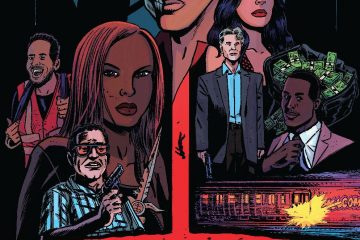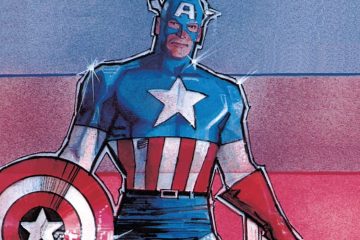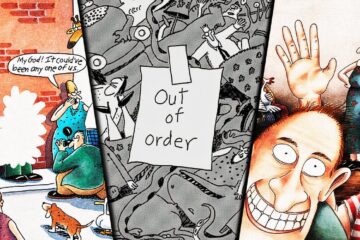One of the great joys of the Marvel Universe is following the Avengers’ constantly changing roster. Ever since the team was overhauled entirely in 1963s The Avengers Vol 1 #16 (by Stan Lee, Jack Kirby, Dick Ayers, Stan Goldberg, and Artie Simek), Earth’s Mightiest Heroes have remained mercurial, with numerous heroes coming and going over the decades. However, the “Big Three” of Captain America, Iron Man, and Thor have nearly always been present, often providing consistency during team transitions. Nonetheless, all of this changed with the emergence of the New Avengers in 2005. Although Iron Man and Captain America (as Nomad) graced the team’s original roster, the New Avengers carved a path for themselves without needing Marvel’s trinity.Strangely, this led to the greatest Avengers team of all time. Through including different characters—some often maligned, others criminally underrated—Brian Michael Bendis set an exceptional precedent for character progression. The likes of Luke Cage truly came into their own in the New Avengers through refreshing stories that redefined the cast. Furthermore, the New Avengers were far from bargain-basement heroes; their ranks boasted the near-omnipotent Sentry and the heroes played an essential role in all of Marvel’s crossover events in the 2000s. The New Avengers have an important legacy, most crucially having proven that the Avengers work just as well without Captain America, Iron Man, or Thor.This was crucial to the New Avengers’s success. Without a super soldier, playboy billionaire, or literal god around, the stories and characters became more grounded, with Bendis and his successors focusing on the little things. Indeed, some of the run’s finest moments were the witty banter between Spider-Man and Wolverine over the breakfast table. At its core, the team truly felt like a family, lending their tales greater charm, weight, and urgency. Importantly, in-universe, the New Avengers were simply called the Avengers, this splinter group viewing themselves and not the government-sanctioned operative as the “true” Avengers. Their underdog status and righteousness, even in the face of seemingly insurmountable odds, endeared them to readers all the more, creating a whole new dynamic previously unseen in The Avengers.
One of the great joys of the Marvel Universe is following the Avengers‘ constantly changing roster. Ever since the team was overhauled entirely in 1963s The Avengers Vol 1 #16 (by Stan Lee, Jack Kirby, Dick Ayers, Stan Goldberg, and Artie Simek), Earth’s Mightiest Heroes have remained mercurial, with numerous heroes coming and going over the decades. However, the “Big Three” of Captain America, Iron Man, and Thor have nearly always been present, often providing consistency during team transitions. Nonetheless, all of this changed with the emergence of the New Avengers in 2005. Although Iron Man and Captain America (as Nomad) graced the team’s original roster, the New Avengers carved a path for themselves without needing Marvel’s trinity.
Strangely, this led to the greatest Avengers team of all time. Through including different characters—some often maligned, others criminally underrated—Brian Michael Bendis set an exceptional precedent for character progression. The likes of Luke Cage truly came into their own in the New Avengers through refreshing stories that redefined the cast. Furthermore, the New Avengers were far from bargain-basement heroes; their ranks boasted the near-omnipotent Sentry and the heroes played an essential role in all of Marvel’s crossover events in the 2000s. The New Avengers have an important legacy, most crucially having proven that the Avengers work just as well without Captain America, Iron Man, or Thor.
This was crucial to the New Avengers’s success. Without a super soldier, playboy billionaire, or literal god around, the stories and characters became more grounded, with Bendis and his successors focusing on the little things. Indeed, some of the run’s finest moments were the witty banter between Spider-Man and Wolverine over the breakfast table. At its core, the team truly felt like a family, lending their tales greater charm, weight, and urgency. Importantly, in-universe, the New Avengers were simply called the Avengers, this splinter group viewing themselves and not the government-sanctioned operative as the “true” Avengers. Their underdog status and righteousness, even in the face of seemingly insurmountable odds, endeared them to readers all the more, creating a whole new dynamic previously unseen in The Avengers.
#Avengers #Greatest #Team #Didnt #Marvels #Trinity
Note:- (Not all news on the site expresses the point of view of the site, but we transmit this news automatically and translate it through programmatic technology on the site and not from a human editor. The content is auto-generated from a syndicated feed.))



